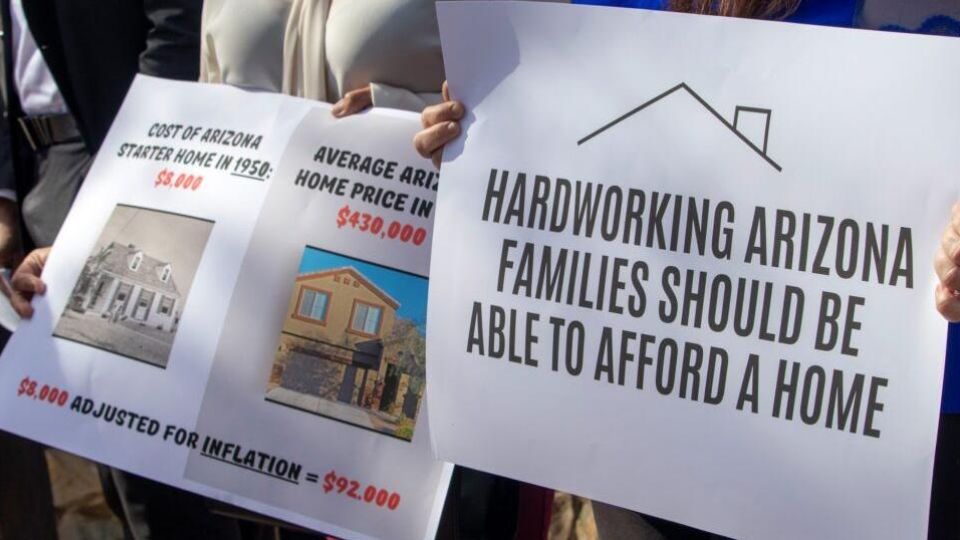Lawmakers who support housing advocates and homebuilders are almost ready to reach an agreement with cities on a proposal. The goal is to address Arizona’s housing shortage by increasing the construction of townhomes, duplexes, triplexes, and similar homes in larger cities. This would be done by using land that is currently designated for single-family homes.
The proposed deal will require cities to allow smaller, cheaper homes on lots within a mile of the central business districts of larger cities. This is a change from their previous opposition to the Legislature’s efforts to control zoning rules.
The agreement also states that cities must allow up to 20% of smaller multi-family “missing middle” homes in any home development that is 10 acres or larger. The agreement will affect 15 cities that have a population of 75,000 or more.
The proposal introduced by Rep. Michael Carbone, a Republican from Buckeye, has been delayed in the Senate for several weeks. It barely passed in the House in mid-March. The delay happened because the League of Arizona Cities and Towns, an association that represents city interests at the Legislature, opposed it.
Carbone said in an interview on Monday that a final deal is close. “We are very close to reaching a deal,” Carbone informed Capitol Media Services. “We are all striving to reach that final goal.”
Carbone mentioned that allowing smaller, in-fill developments such as duplexes and townhomes will not only increase the housing supply but also support small contractors in growing their businesses. He is saying that those companies are currently unable to compete with big corporate contractors.
Also Read: A Jersey Mother Walks Between Her 2-year-old and a Mountain Lion
The measure might be voted on by the Senate as early as Wednesday. Cities were initially against Carbone’s proposal because it would have made them allow different types of housing, such as townhomes, duplexes, triplexes, fourplexes, and even fiveplexes, on any lot in a city that was originally zoned for single-family homes.
The Senate committee removed fiveplexes from the bill. The new deal only applies to business districts and larger developments. One of the main problems is that young workers and families can no longer afford to buy a traditional single-family home because prices and interest rates have gone up a lot. These new, smaller units are seen as something that they might buy.
Carbone’s legislation, House Bill 2721, is one of many proposals put forward this year to tackle Arizona’s significant housing shortage. The League has been actively negotiating, with the encouragement of Democratic Gov. Katie Hobbs, to reach agreements on certain housing proposals.
Hobbs rejected a bill called the Arizona Starter Home Act, which was supported by both Republican and Democratic leaders and was considered to have a significant impact.
House Bill 2570 aimed to change local zoning rules in larger cities. It would have allowed small lots to be built anywhere and also prevented other local rules from affecting homebuilding. In her letter rejecting the proposal, Hobbs described it as a wide-ranging “housing reform experiment” with uncertain and significant consequences.
She recently approved several housing measures, one of which permits the construction of apartments in areas that were previously designated for commercial and industrial purposes. This decision was supported by the League.
This rule requires cities with a population of 150,000 or more to allow up to 10% of their current commercial, office, or mixed-use buildings to be converted or demolished, if needed, to create space for apartments or condominiums. This can be done without making any changes to zoning regulations or holding public hearings. The “adaptive reuse” bill, also known as House Bill 2297, states that buildings can be repurposed if they are no longer economically viable. This bill also gives cities the power to prevent residential development in specific business areas.
Cities have also supported a measure signed by the governor. This measure requires cities to make a decision on any zoning change within six months. Additionally, cities are now required to conduct a housing needs assessment every five years.



Leave a Reply